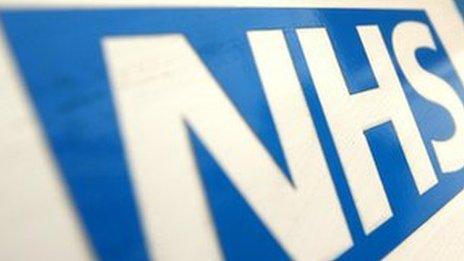NHS England: King's Fund says £2bn more needed next year
- Published
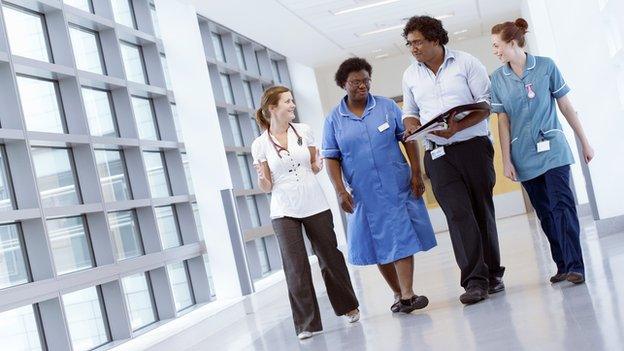
The NHS in England should be given £2bn more next year, the King's Fund health think tank has said.
Calls for extra money for the service are intensifying after the latest figures showed the deficit growing as performance deteriorates.
Halfway through the 2014-15 financial year the service's deficit had reached £630m - up from £500m a few months ago.
It comes as targets are being breached for A&E, hospital operations and cancer treatment.
In a briefing document, the King's Fund said the levels of deficits - revealed in official NHS board papers - were "unprecedented" and showed financial distress had become "endemic".
It follows an indication by Deputy Prime Minister Nick Clegg that he expected extra money for the health service to be part of next week's autumn statement from Chancellor George Osborne.
The NHS budget, which currently stands at £113bn, has been increasing in real terms over the course of this parliament by an average 0.7% a year. Next year it will rise to £115bn - but the think-tank said it still needed another £2bn.
But the King's Fund said increasing demand combined with the need to invest in extra staff after the Stafford Hospital scandal had pushed many parts of the NHS - particularly hospitals - into the red.
It comes after almost a decade of surpluses in the health service was brought to a halt in 2013-14 by a £100m deficit.
But that now looks set to be dwarfed by the debts mounting this year.
While the second half of the financial year tends to be better than the first, most forecasts are not predicting a significant improvement in fortunes.
King's Fund chief executive Chris Ham said: "There is scope to improve productivity in the NHS, but this will not be enough to respond to unprecedented pressures on budgets and meet rising demand for services.
"Unless more money is found a financial crisis is inevitable next year and patients will bear the cost as waiting times rise and quality of care deteriorates."
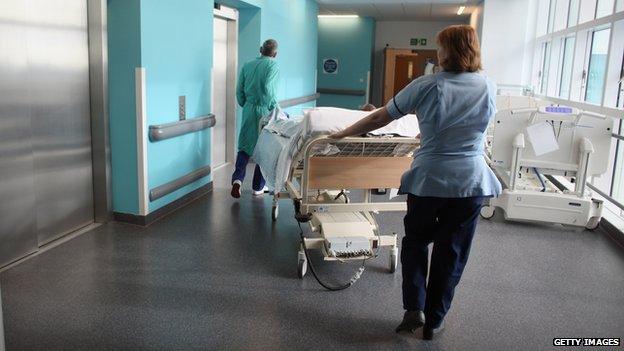
The warning comes just weeks after the government announced a total of £700m will be pumped into the system to help it cope this winter.
The four-hour waiting time target has been missed almost on a weekly basis since the summer with performance at its lowest level for this time of year for a decade.
Howard Catton, of the Royal College of Nursing, said one of the key issues to tackle was the "runaway spending on agency staff".
The board papers issued by the two regulators in the health service - Monitor and the NHS Trust Development Authority - highlighted this as a problem.
"It is a direct consequence of short-term workforce planning and a failure to train and retain enough nurses, which has forced desperate trusts to spend over-the-odds just to maintain safe staffing levels," Mr Catton said.
- Published10 July 2014

- Published7 July 2014
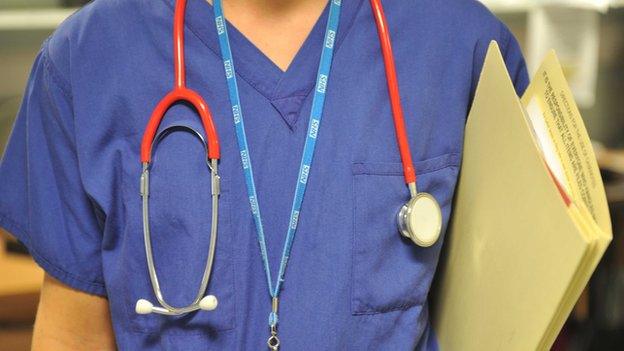
- Published29 June 2014
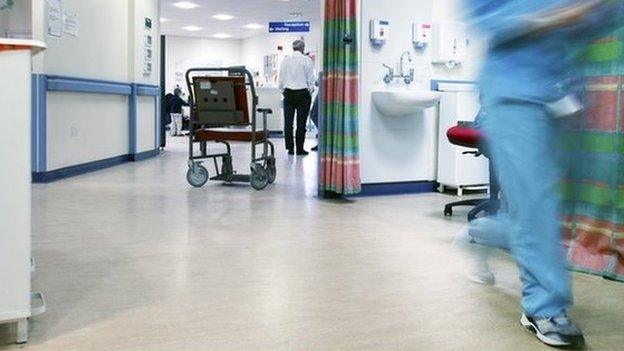
- Published18 June 2014
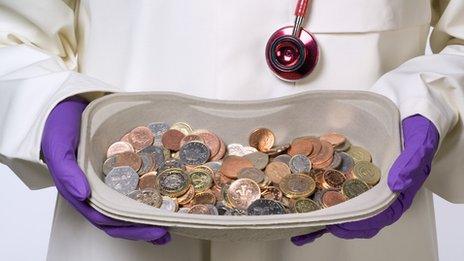
- Published1 April 2014
